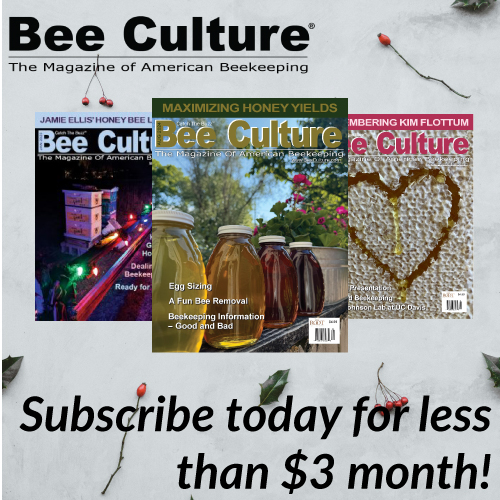 Dead Bees Don’t Make Honey
Dead Bees Don’t Make Honey
Dewey M. Caron
Dead Bees Don’t Make Honey by Theresa Martin (2024, Little Wolf Farm, ISBN 979-8-9902757-0-6, available from Amazon) subtitled 10 Tips for Healthy Productive Bees is an extremely well written, practical guide to help insure success with bee colony care. If you mentor others, this book could be your instructional manual.
Author Theresa Martin is a six year beekeeper from Kentucky. She started with two colonies and now keeps 20, each individually named. Following a treatment-less management approach, she has had only a single colony loss in her beekeeping journey. Dead Bees Don’t Make Honey clearly and thoroughly explains how she has managed such success.
Dead Bees has four sections, each different but highly informative. The first section of 10 Tips is roughly ½ of the book. The tips are her beekeeping roadmap. Five tip examples are: Acquiring local bees, encourage more propolis, space colonies out in apiary, keep colonies smaller and insulate hives. Each tip is discussed in less than 10 pages. The format is easy to follow and flows easily. Throughout the author references back to the tips as tip #1 or tip #3 for example.
Each tip has repeating, clearly identified subheadings. The information begins with a bee biology section and then, relative to that tip, coverage of conventional beekeeping related to the tip. Footnotes and references (130 total) identify the source of the material. The last two subsections are how adoption of the tip can improve bee health and productivity and then there are personal notes by Teresa identified as “my implementation.”
Theresa, in her introduction, writes that Dead Bees is not a “how to” book of common beekeeping practices. She recommends Honey Bee Biology & Beekeeping and ABC XYZ of Beekeeping for that information. The “my implementation” section is her personal application of the tip. She specifies that the my implementation material is “detail only of the natural practices that…” are less common.
The second section is 40 pages of 10 illustrative precision beekeeping practices. The data presented by Teresa was developed via use of the T2SM BroodMinder© (https://broodminder.com/) temperature sensor. Included are five examples of how temperature data illustrates brood rearing and colony queen right condition, one example of how temperature can detect swarm departure (a distinctive 4◦ temperature spike), two examples of how temperature can illustrate colony stressors of varroa and a single nighttime visit of a skunk and the last two illustrate how beekeeper management (winterizing and colony examinations) can be documented simply via temperature measurement. We can see how winterizing a colony is especially conservative of holding a Winter heat sink and its influence on Winter brood rearing.
The third Section (20 pages) covers the concept of treatment-less management as practiced by Theresa. She describes her effort to establish a treatment-free zone around one of her apiary sites but could not get buy-in from nine surrounding beekeepers (heavy losses would be expected with adoption of treatment-free selection pressure before achieving colonies more tolerant of mites). Therefore, she describes how she adopted treatment-less management. Her wintering success speaks to the effectiveness of her adopted managements.
The fourth section includes 18 frequently asked questions FAQs – developed from talks to beekeeping groups (by the way, if you are looking for a club speaker, Teresa has a great message, well delivered – you might consider inviting her to a future meeting). She additionally has seven suggestions for novices and a detailed 21 page seasonal management calendar. It includes sufficient detail to permit adoption for where you keep bees. There are numerous photos, mostly by the author and the Broodminder charts along with tables of her beekeeping results.
This is a great self-help book for those who wish to keep bees more closely to natural beekeeping but who wish to avoid continued losses. There is nothing you couldn’t do – the author recognizes we all keep bees to our individual preferences. The why and how to adopt these 10 tips is clearly detailed. If you wish to become treatment-less than I highly recommend Dead Bees Don’t Make Honey by Theresa Martin.






